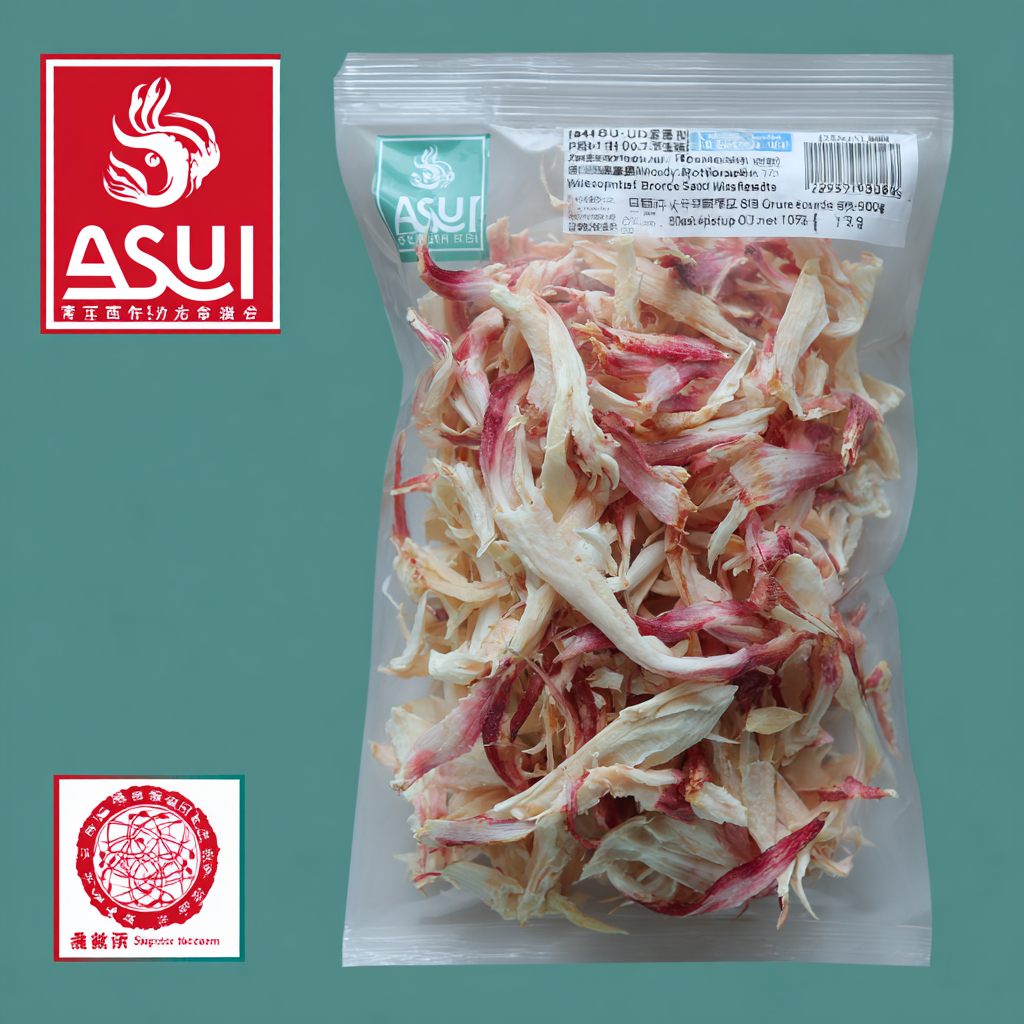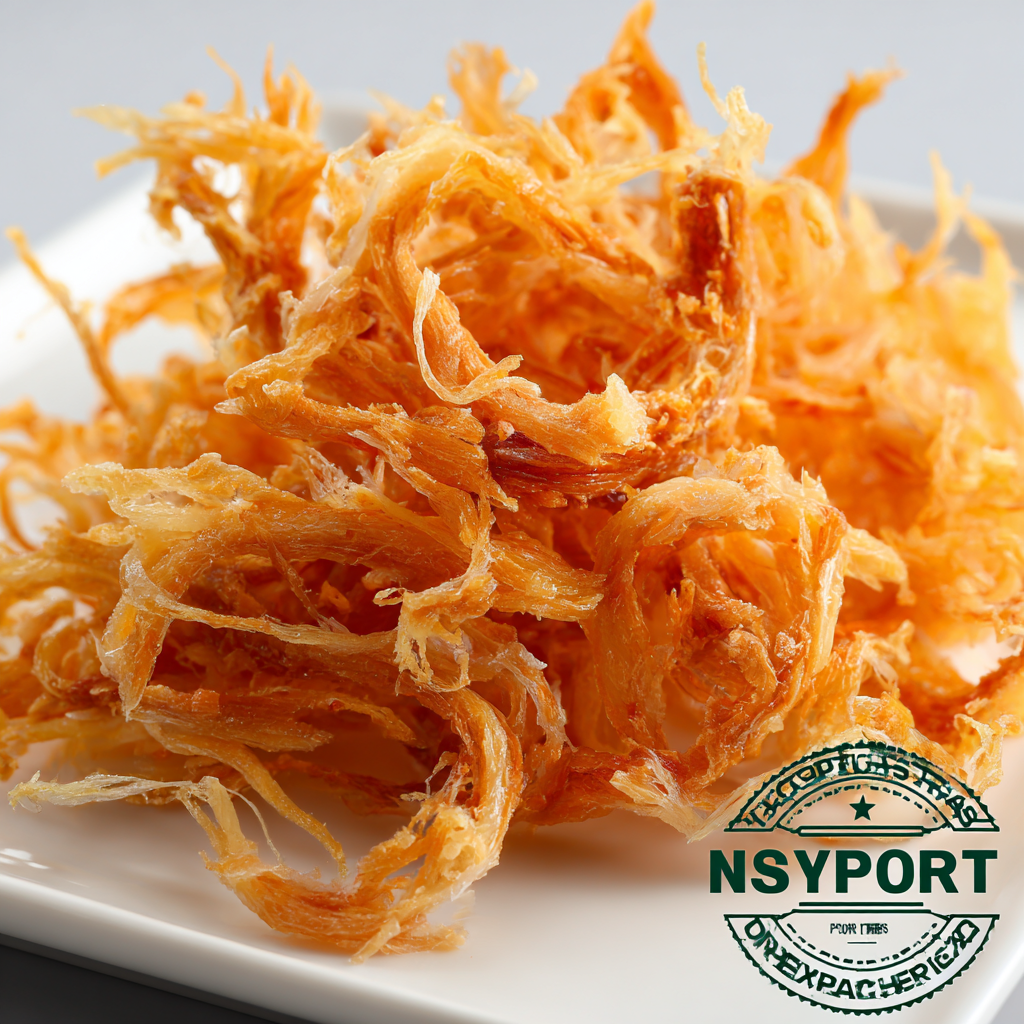In recent years, the global market for Dried Squid Snack has experienced significant growth, driven by increasing consumer demand for healthy, protein-rich snacks. According to a report by Market Research Future, the seafood snacks market is projected to reach a value of $8 billion by 2025, with dried seafood products like squids playing a crucial role in this expansion. As more companies follow the trend of offering unique and flavorful snack options, navigating the complex landscape of import and export certifications becomes essential for success. Understanding the regulatory requirements not only ensures compliance but also enhances the brand's credibility in the competitive market. In this blog, we will explore expert tips and strategies to help entrepreneurs effectively manage the certification process for Dried Squid Snack, paving the way for growth and market penetration.

 Import export certifications are crucial for businesses venturing into the dried squid snack market. These certifications ensure that products meet both local and international safety and quality standards, which can significantly influence consumer trust and marketability. For companies looking to thrive in this competitive niche, understanding the specific requirements for dried squid snacks is essential. Different countries may impose varying regulations regarding food safety, packaging, and labeling, necessitating thorough research and compliance on the part of exporters and importers alike.
Import export certifications are crucial for businesses venturing into the dried squid snack market. These certifications ensure that products meet both local and international safety and quality standards, which can significantly influence consumer trust and marketability. For companies looking to thrive in this competitive niche, understanding the specific requirements for dried squid snacks is essential. Different countries may impose varying regulations regarding food safety, packaging, and labeling, necessitating thorough research and compliance on the part of exporters and importers alike.
One key aspect to consider is the type of certifications required for seafood products. For example, the Hazard Analysis and Critical Control Points (HACCP) certification is often indispensable, as it demonstrates a commitment to food safety by controlling potential hazards throughout the production process. Additionally, certifications from organizations such as the FDA or equivalent authorities in other regions can further bolster a company’s credibility in the marketplace. By navigating these import export certifications effectively, businesses can set themselves up for success and ensure their dried squid snacks are well-received by consumers around the world.
 When entering the dried squid snack market, understanding key regulations is crucial for success. Many countries impose strict import and export certifications that ensure product safety and compliance with health standards. These regulations often vary by region, necessitating thorough research to determine the specific requirements for your target markets. Issues like labeling, nutritional information, and permissible additives can significantly impact your trading operations. Familiarizing yourself with these regulations not only streamlines the importing process but also helps build trust with consumers who are increasingly conscientious about food safety.
When entering the dried squid snack market, understanding key regulations is crucial for success. Many countries impose strict import and export certifications that ensure product safety and compliance with health standards. These regulations often vary by region, necessitating thorough research to determine the specific requirements for your target markets. Issues like labeling, nutritional information, and permissible additives can significantly impact your trading operations. Familiarizing yourself with these regulations not only streamlines the importing process but also helps build trust with consumers who are increasingly conscientious about food safety.
Moreover, compliance with these regulations can open up new market opportunities. For example, obtaining certifications such as HACCP (Hazard Analysis Critical Control Point) or ISO can enhance your credibility and appeal to a broader customer base. These certifications demonstrate a commitment to quality and safety that can differentiate your product in a crowded marketplace. By proactively addressing regulatory challenges, businesses can navigate the complex landscape of import/export with confidence, paving the way for sustained success in the dried squid snack industry.
When navigating the import-export landscape for dried squid snacks, obtaining the necessary certifications is crucial for ensuring compliance and market success. The certification process typically involves several essential steps: understanding the specific regulatory requirements in target markets, collecting the necessary documentation, and completing the application process with relevant authorities. For food exports, certifications such as HACCP and FDA approval are often mandatory, as they provide assurance regarding food safety and quality that consumers demand.
Research indicates that the global dried seafood market is expected to grow significantly, driven by rising consumer interest in healthy snacks. A report from industry analysts suggests that by 2025, the seafood snack segment could experience a compound annual growth rate (CAGR) of over 7%. This demand underscores the importance of securing the right certifications, as these approvals not only facilitate market entry but also enhance consumer trust. Furthermore, having proper certifications can provide a competitive advantage, helping brands stand out in a crowded marketplace where consumers are increasingly aware of food sourcing and safety standards.
When it comes to exporting dried squid snacks, ensuring compliance with international regulations is crucial for success. The first step in this navigation is understanding the specific documentation required by different countries. Each market may have its own set of rules regarding food safety standards, packaging, and labeling. It is essential to research these requirements thoroughly to avoid costly delays and ensure your product meets all necessary health and safety regulations. Collaborating with a local expert or consultant familiar with the target market can provide invaluable insights.
Another critical aspect of compliance is securing the right certifications. These may include quality certifications, health permits, and any export-specific documentation that demonstrates the product is safe and compliant with local and international laws. Staying organized and maintaining clear records of all certifications can streamline the export process. Regularly reviewing compliance requirements is also vital, as regulations can change frequently. By prioritizing thorough documentation and certification processes, businesses can navigate the complexities of importing and exporting dried squid snacks more efficiently, paving the way for successful international trade.
In the competitive landscape of food exports, leveraging import-export certifications is crucial for maximizing market potential. According to a report by Market Research Future, the global dried seafood market is expected to grow at a CAGR of 5% from 2021 to 2026, with dried squid snacks being a significant segment. Certifications not only enhance product credibility but also meet the regulatory requirements that can open doors to new markets, particularly in regions with strict food safety standards like the EU and North America.
To optimize your position in the market, ensure that your products comply with international food safety regulations such as HACCP and ISO 22000. These certifications can serve as a quality assurance mark, helping to persuade consumers and retailers of your product's reliability.
Tip 1: Consider partnering with a certification body that specializes in seafood to navigate the certification process efficiently.
Tip 2: Attend international food trade shows where you can connect with industry experts who can share insights and potentially facilitate certification suggestions.
Investing in these certifications can significantly contribute to your growth, allowing you to explore new distribution channels and increase your market share.
